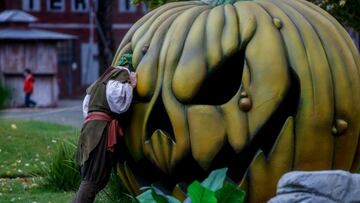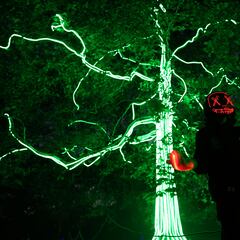Is Halloween Irish? Find about Samhain, the true origin of the Halloween celebration
This traditional festival dates back over 2,000 years, coinciding with the end of the harvest season and the start of the ‘Celtic New Year’.

Millions of people are already preparing to celebrate Halloween with all kinds of costumes, the vast majority of them inspired by current events. However, many of those taking part in this popular celebration are unaware of the true origin of Halloween in Ireland. It came out of a much older Celtic festival the well-known Samhain, pronounced “sow-in,” which dates back more than 2,000 years.
The arrival of the ‘dark season’
In Ireland, long ago they began to celebrate the Celtic holiday of ‘Samhain’, a festival that celebrates the end of the harvest season and the beginning, therefore, of the ‘Celtic New Year’. On this curious holiday, in Ireland it was believed that the souls of the deceased returned home, and that those who died during that year traveled to the ‘other world’ during that night. In this way, all their neighbors lit bonfires in the hills and in their homes to avoid evil spirits. They also used masks and costumes to avoid being recognized, or fairies from kidnapping them.
Related stories
Of course, the holiday has changed over the years and has lost the traditional strength of its meaning, becoming a more special celebration for the little ones, who go from house to house in search of candy. Seeing this Irish tradition, many could compare it to the Mexican one, very similar in many aspects, although Samhain focused on celebrating the arrival of winter, or better known as ‘the dark season of the year ‘.
From our partners at @TourismIreland:
— Irish Arts Center (@IrishArtsCenter) October 24, 2024
DYK that Halloween began in Ireland, aka the ancient Celtic festival Samhain (pronounced "sow-in") over 2,000 years ago? Today, Samhain lives on in Ireland w celebrations that are a MUST for your travel bucket list: https://t.co/mLkzGvtF1A pic.twitter.com/cWYYZz7X79
The origin of Samhain, therefore, was the celebration of that date that ends summer and welcomes winter. All one’s neighbors had to participate in this festival, honoring the spirits. And if you didn’t, you were cursed until you made amends for this disrespect, as established by tradition. Among the curses were disease, economic difficulties and, what was more important then, a bad harvest season.

